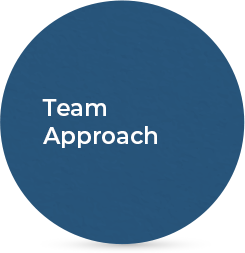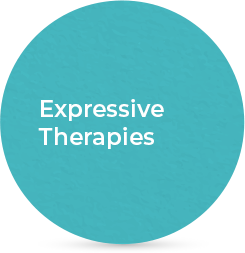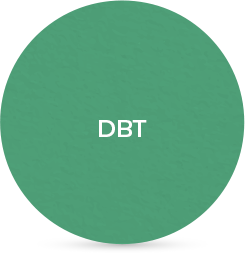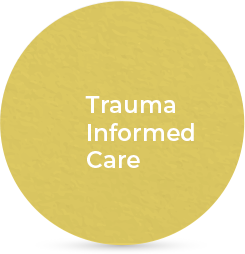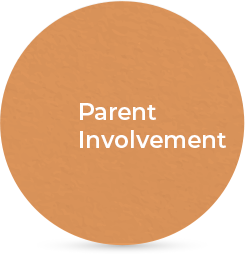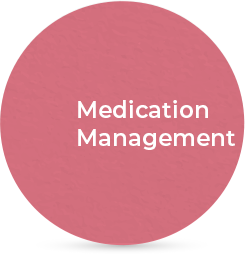
Clinical Services:
Intensive Healing through
Clinical Support
The clinical program at La Europa provides intensive services to help each student experience healing. We use a combination of insight-oriented therapeutic approaches, cognitive behavioral therapy, expressive therapy, dialectical behavioral therapy, radically- open dialectical behavioral therapy, family systems therapy, and trauma-informed care.
We offer clinical support in the form of individual therapy, family therapy, and group therapy. Each student is assigned a primary therapist upon admission that is predetermined by our team based on the needs of each individual student.
Our Clinical Services
Individual Therapy
Family Therapy
Students and their families receive up to 90 minutes of family therapy per week. These sessions provide families with the opportunity to work through issues together to heal and gain skills as a family.
Group Therapy
Group therapy empowers our students by fostering emotional processing, and mutual respect. We offer daily sessions Monday to Thursday, encompassing both traditional and expressive arts therapy.
NeuroFeedback
Neurofeedback is a method used to assist our students to control their brain waves consciously. Students receive 3 brain maps and 40 neurofeedback sessions while they are enrolled at La Europa.

A Team Approach:
Comprehensive Care through a Team Approach
At La Europa Academy, we prioritize a team-based approach to treatment to ensure every student receives comprehensive, individualized care. Each student is reviewed by their treatment team twice a month to assess progress, goals, and therapeutic response.
In addition to regular communication between families and each student’s primary therapist, we hold quarterly case reviews to ensure collaboration with the student’s broader support team. Parents, educational consultants, and other external professionals are invited to join these reviews to share feedback, ask questions, and help shape ongoing treatment goals.
This collaborative approach ensures consistent support, transparency, and alignment between La Europa and the student’s extended care team, all with the goal of fostering meaningful growth and lasting progress.
- Parents
- Primary Therapist
- Psychiatrist
- Clinical Director
- Residential Director
- Academic Director
- Expressive Therapists
- Recreational Therapist
- Team Leaders from the residential staff
- Student
Expressive Therapies
Expressive Therapies Reach Beyond Words
Parents often wonder how La Europa Academy will be able to impact their child and create change. Part of the answer lies in the ability of the expressive therapies to reach beyond words. Students who have been involved in regular talk therapy often learn how to avoid talking about and dealing with issues that are emotionally laden. Expressive therapies allow each student to explore themselves through a variety of modalities that can create a bridge around the student’s defenses. La Europa Academy offers a plethora of expressive therapies that are provided by master’s level clinicians who are board-certified or specialize in their specific expressive modality.
Art Therapy
Music Therapy
Dance/Movement Therapy
Recreation Therapy
Sand Tray Therapy
Psychodrama
Anime Art Therapy
Dialectical Behavior Therapy (DBT)
What is Dialectical Behavior Therapy and How is it Used at La Europa Academy?
Dialectical Behavior Therapy (DBT) and Radically Open Dialectical Behavior Therapy (RO DBT) bridge our clinical and residential programs at La Europa. DBT is both a philosophy to help view students' challenges from a functional perspective and a structure that helps staff move students toward positive change. Insight-oriented therapy helps our students learn about themselves and have a deeper understanding of what needs to change. Yet most people struggle to convert insight into action. DBT helps our students translate their insight into concrete skills to change behavior.
The DBT philosophy is based on a dialectic frame of reference. A "dialectic" is a tension between two points of view that appear to be in opposition and in which there is no "right" answer. For example, in residential treatment, a dialectical dilemma occurs between providing enough structure for the students to help them "contain" their emotions and behavior but enough freedom to explore, grow and practice new skills safely. A dialectical approach to therapy means that the treating professionals attempt to create a synthesis between the students' need to change and their need to accept themselves. This approach is important for helping the treatment team and the student not get stuck in a negative behavior cycle but rather focus on understanding behavior, recognizing incremental positive changes, and moving forward.
Radically Open Dialectical Behavior Therapy (RO-DBT)
What is RO-DBT and How Is It Used at La Europa Academy?
Radically Open Dialectical Behavior Therapy (RO-DBT) is an evidence-based treatment designed for people who tend to over control their emotions and behavior. While traditional DBT focuses on helping students manage impulsivity or emotional reactivity, RO-DBT supports those on the opposite end of the spectrum. Many of our students lean toward perfectionism, rigidity, social withdrawal, or masking their true feelings. RO-DBT helps them loosen that emotional tightness so they can connect more openly with others and navigate their world with more flexibility.At La Europa, RO-DBT is woven into both our clinical work and our residential routines. It gives us a shared language for understanding why some students avoid vulnerability, shut down when they feel evaluated, or stay “in control” even when they’re overwhelmed. Our therapists and residential staff use RO-DBT principles to help students take healthy risks, show more of their true selves, and build stronger, more authentic relationships. This model complements our traditional DBT work by supporting a quieter, more internal set of challenges that often go unnoticed. RO-DBT teaches that emotional wellbeing grows from openness, flexibility, and genuine social engagement. Many of our students have survived difficult experiences by becoming highly self-contained and careful. RO-DBT helps them understand those patterns without judgment and gently expand their emotional range so they feel more connected and supported.
Why is DBT helpful?
The behavioral aspects of DBT help students learn to break behaviors into smaller action steps and identify and practice effective skills to manage behavior and emotions. The structure of DBT increases the students' chances of effectively transitioning home by providing a practical, in-the-moment understanding of how to use skillful behavior and translate insight gained in therapy into action!
Why is RO-DBT helpful? Students who over control often struggle silently. They may appear high functioning on the outside but feel lonely, anxious, or misunderstood on the inside. RO-DBT gives them practical tools to safely practice openness, warmth, and emotional expression. Through skills work, targeted therapy, and consistent residential reinforcement, students learn to soften rigid patterns and feel more at ease with connection and uncertainty. Like DBT, the goal is to help students translate insight into real action. As they become more flexible, expressive, and willing to take small emotional risks, their relationships improve, and so does their confidence in navigating life at home and beyond.
What type of DBT activities do we use?
DBT Skills Group
Diary Cards
Mindfulness Group
Behavioral Chain Analysis
DBT Coaching Group
Therapeutic Interfering Behavior
DBT Parent Support Group
Trauma Informed Care
We Focus on Healing from the Roots
We believe it is important to consider past trauma and coping mechanisms when working with students. We focus on healing the roots as well as the causes of a student's problem behaviors rather than just focusing on their behavior alone. Most of our students have experienced some type of trauma, whether large or small. When we understand how traumatic experiences and traumatic stress may impact our students, many things are likely to turn out better.
Our clinical team is trained in different components of trauma-focused treatment. Our residential staff are taught about trauma and provided skills to support a student who has a history of trauma. We strongly believe that expressive types of therapy are very helpful with our students, especially as we focus on trauma and all its many aspects through our clinical program. La Europa is focused on helping those who have experienced trauma.
We use a variety of different methods to help our students heal and move forward.
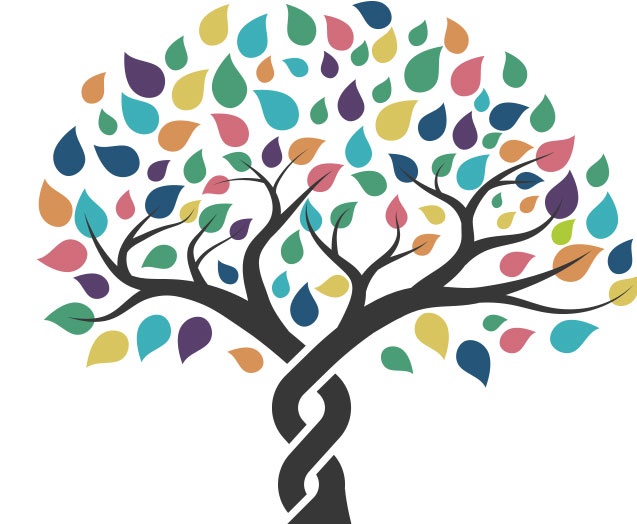
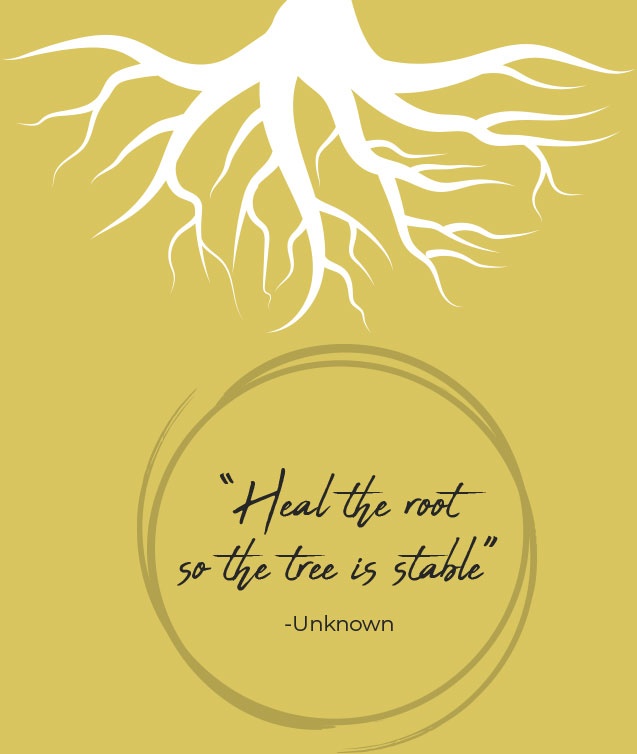
Brainspotting
Using bilateral sounds and fixed eye positions - brain spotting engages deep parts of the brain to release stored traumatic memories and experiences. Specific eye positions each link to their own “brainspot,” an area of the mind that retains thoughts and emotions. Individuals fixate on troubling brainspots to uncover hidden mental challenges. Brainspotting works with the limbic system to help the body process past trauma while also calming the nervous system when these negative emotions are triggered.
Trauma Group
In a group therapy setting, students who have experienced trauma may be able to more easily recognize and validate what another student is going through because of very similar experiences.
Trauma Sensitive Yoga
The goal of trauma sensitive yoga is for trauma survivors to develop a greater sense of the mind-body connection to help ease a student’s traumatic experiences and gain a better understanding of their own bodies.
Parent Involvement
We Love When Our Parents Get Involved!
Research demonstrates that one of the keys to the success of adolescent treatment is parental involvement. We invite parents to participate in the treatment process in a number of ways.
|
Weekly Family Therapy
Via videoconferencing for 1 ½ - 2 hours |
|
|
Family Workshops
For two days each quarter (dates are established well in advance). These workshops include a day-long multi-family group with experiential therapy; a parent support group and a parent-teacher conference. |
|
|
DBT Webinars and Parent Coaching Support Group
For parents to learn, practice and integrate the same skills their child is learning. |
|
|
Regular webinars
On a wide variety of topics in which parents can participate if interested. |
|
|
Quarterly Case Reviews via video chat with the treatment team
|

Medication Management
Medication Management Matters
Psychiatric care and the monitoring of the effectiveness of medication are important components of effective treatment. La Europa Academy has three psychiatrists that work with our program.
The psychiatrists meet with each new student as soon as possible after enrollment and complete an initial evaluation. Medications are reviewed, and the student's current medication regimen is discussed with parents.
Changes to medications are usually not made for the first 30 days while the student is settling in. A student's Psychiatrist collects information from the therapist, the residential team, and the school before making any recommendations for medication changes so they can get a full profile of how the student is doing.
La Europa Academy has onsite nursing available. The nurse accompanies the psychiatrists for all meetings with students to ensure a smooth transition with any medication changes.

